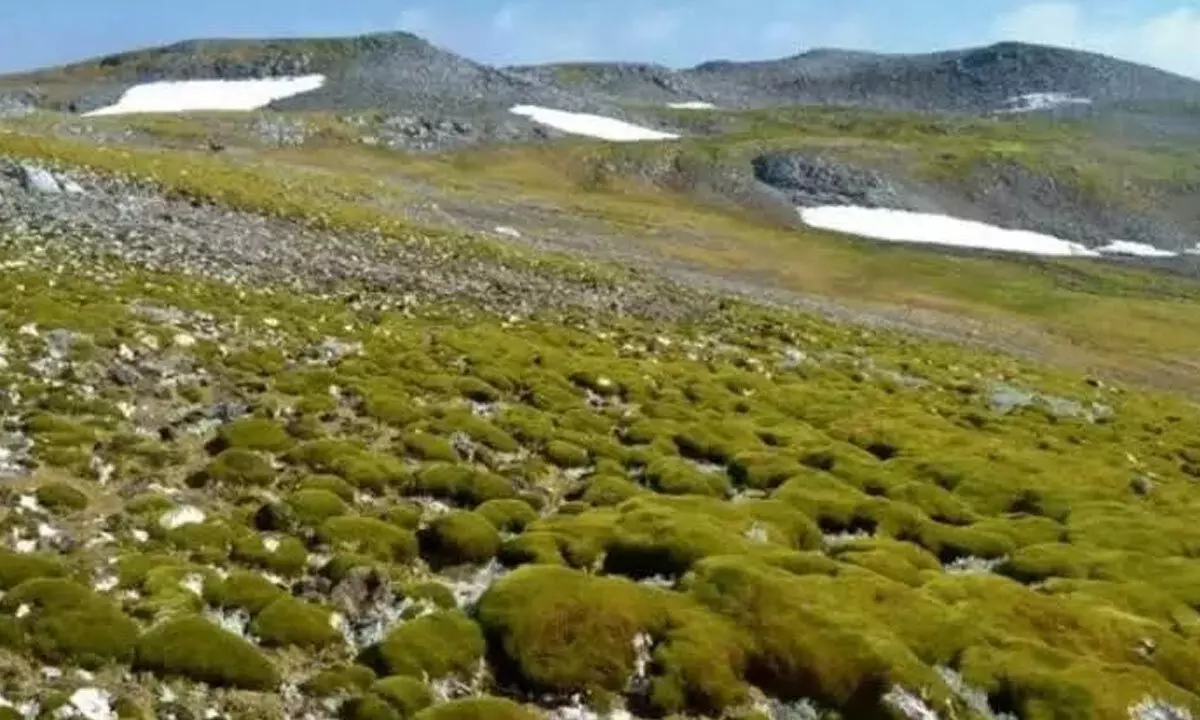Antarctica turning green 'dramatically', trend accelerated over years

Antarctica is turning green "dramatically", with the trend accelerated by more than 30 per cent in recent years, compared to the past three decades, a new study has found.
New Delhi: Antarctica is turning green "dramatically", with the trend accelerated by more than 30 per cent in recent years, compared to the past three decades, a new study has found.
Researchers found that vegetation cover across the Antarctic Peninsula increased more than tenfold -- from less than a square kilometre to almost 12 square kilometres -- between 1986 and 2021. The researchers, including those at the University of Exeter, UK, used satellite data to estimate the "greening" rate of the Antarctic Peninsula in response to climate change. "This recent acceleration in the rate of change in vegetation cover (2016-2021) coincides with a marked decrease in sea-ice extent in Antarctica over the same period," the authors wrote in the study published in the journal Nature Geoscience.
The study provides evidence that a widespread greening trend, across the Antarctic Peninsula, is under way and accelerating, they said. Antarctica has been shown to be warming faster than the global average, with extreme heat events becoming more common. "The plants we find on the Antarctic Peninsula -- mostly mosses -- grow in perhaps the harshest conditions on Earth," corresponding author Thomas Roland, University of Exeter, said.
While only a tiny fraction of the landscape -- still largely dominated by snow, ice and rock -- is colonised by plant life, that tiny fraction has grown "dramatically", showing that even this vast and isolated 'wilderness' is affected by human-caused climate change, Roland said. Corresponding author Oliver Bartlett, University of Hertfordshire, UK, said that as the climate warms and these plant ecosystems establish themselves more, it is likely that the greening will increase.
"Soil in Antarctica is mostly poor or non-existent, but this increase in plant life will add organic matter, and facilitate soil formation -- potentially paving the way for other plants to grow," Bartlett said. Calling for further research to look into the processes that are driving the greening trend, the researchers said that the study raised serious concerns about the future of Antarctica. "The sensitivity of the Antarctic Peninsula's vegetation to climate change is now clear and, under future (human-caused) warming, we could see fundamental changes to the biology and landscape of this iconic and vulnerable region," Roland said. "In order to protect Antarctica, we must understand these changes and identify precisely what is causing them," he added.








